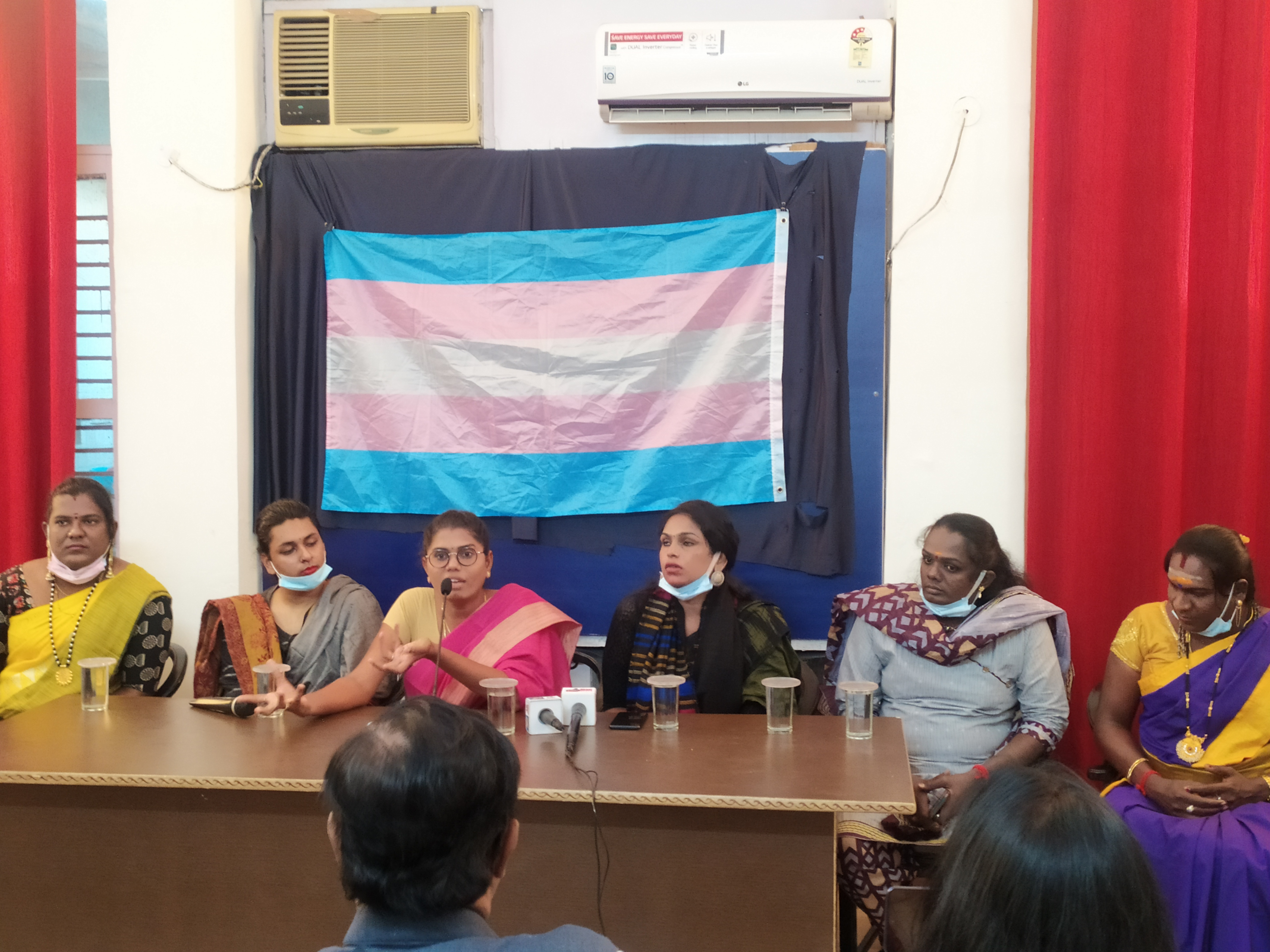“Your silence is killing us,” transgender persons rue govt apathy, demand horizontal reservations

During a press conference, the community activists demanded that the Union Government establish a system for giving horizontal reservations for transgender people within the SC/ST/OBC categories.
Suchitra | TwoCircles.net NEW DELHI - “This government doesn’t understand Babasaheb’s idea of affirmative action,” the voice Grace Banu echoed as she expressed her dissent. Banu, a Dalit trans rights advocate, the first transwoman to become an engineer, claims the government is ignorant to the struggles of the trans community as a whole, and also the caste struggle within the community. In a press conference held on December 8, social activists from the trans community gathered to address the media, to demand horizontal reservations for transgender persons. Tiruchi Siva, a Rajya Sabha MP from the DMK, piloted a private member's bill in December 2014, proposing a scheme of horizontal reservation for transgender and intersex people; that is, reservation as a separate class within the already existing four vertical reservation slabs, similar to how reservation exists for women or people with disabilities. The Transgender Persons (Protection of Rights) Act 2019, threw away numerous progressive suggestions from NALSA judgment and Tiruchi Siva’s private member bill; and made no mention of reservation. The community expressed angst against this last year and continues to build pressure against the Act. “Will you club all cisgender women or cisgender persons within one category? Then why this treatment for us?” Sweta, a transwoman and an activist from Chennai asked. “Welfare schemes are different, and rights are different. This is our right and we will take it from you. We are not asking, or appealing, or requesting. This is our right, and we demand it,” Grace Banu fervently asserted. If adopted, the new government policy will amount to giving transgender people vertical reservations inside the OBC group, which will be damaging to vast portions of the community. "We are struggling for our most basic rights even in 2021, for basic social documents. Many trans people are dropouts, especially those from marginalized communities. Only horizontal reservations would be true justice," said Negha, a transwoman who is an influencer and actress. Many trans activists fear that this backward decision would harm transgender people from marginalized groups and deny them chances. “Dalit and Adivasi transgender people face gender-based violence from within their communities, and face caste-based violence outside. Is it fair to club privileged cisgender people and people from dominant castes within the same category as Dalit and Adivasi transgender people?” said Ragini, another transwoman who is part of the Viduthalai Chiruthaigal Katchi (VCK). Because it refuses to acknowledge that transgender people who are also Dalit or Adivasi face historical disadvantage because of their caste status, as well as discrimination, oppression, and marginalization because of their gender identity, the neglect of caste operating within the transgender and intersex communities can be detrimental for people from these communities. “We lost so many of our brethren this year, and we lose them every year. To healthcare inaccessibility, education inaccessibility, unemployment. So many of these things would be easier with horizontal reservations. We lose them because of your silence,” Grace Banu said, taking a shot at media, who severely underreports atrocities against transgender persons. The community activists demanded that the Union Government establish a system for giving horizontal reservations for transgender people within the SC/ST/OBC categories. Such an approach will take into consideration the intersectionality of the systemic oppression and bias that transgender and intersex people suffer, especially the ones who come from marginalized communities, who face triple persecution because of their caste identity, gender identity and in many cases, class. It would also ensure that some places in school and work are earmarked for transgender and intersex individuals. Only such a structure of horizontal reservations can effectively protect the rights of transgender people as granted by Babasaheb and the Indian Constitution.